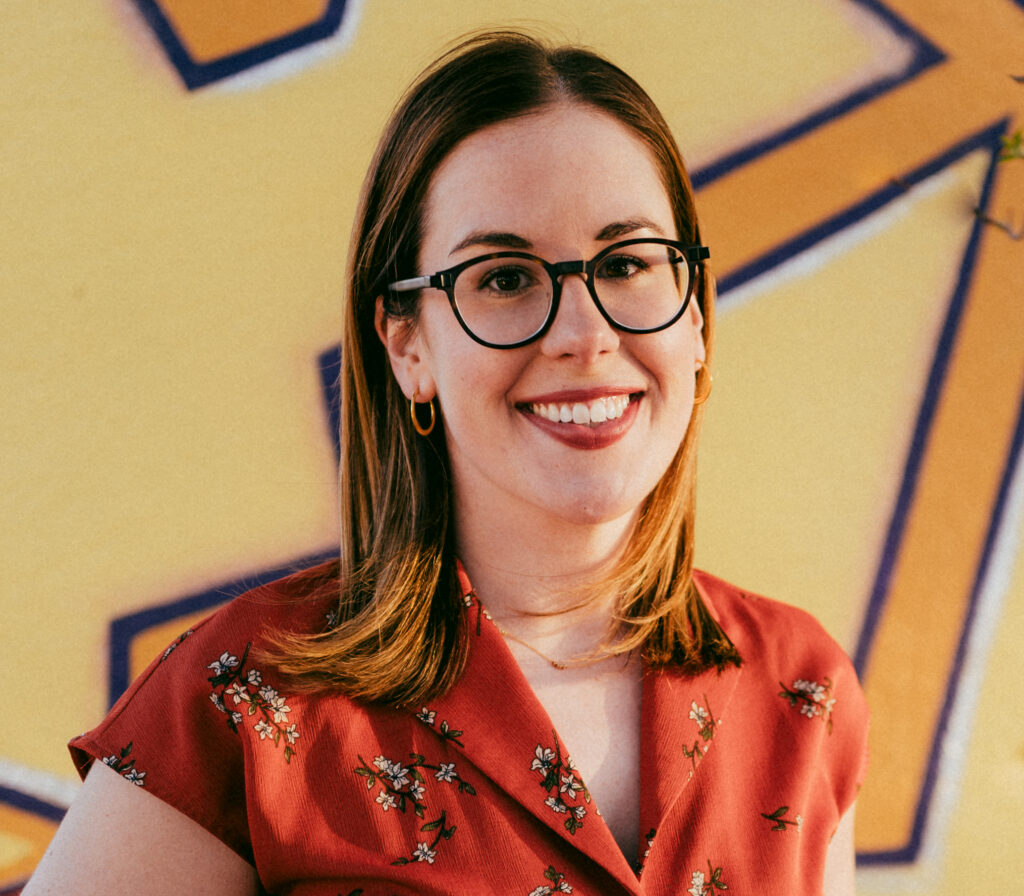My name is Megan Solberg, and I am a sixth-year doctoral candidate in the counseling psychology PhD program at the University of Denver. I currently live in Kansas City, Kansas where I am completing my predoctoral internship at the University of Kansas Medical Center. I aspire to be a health psychologist with specialization in psycho-oncology, as my passion is working with people diagnosed with cancer who are struggling to navigate the vortex of shock and grief to make meaning of illness. My professional interest in the cancer realm is longstanding and prior to graduate school, I worked for 5 years in health administration at Memorial Sloan Kettering Cancer Center (MSKCC). This work exposed me to the psychological toll of cancer on patients and caregivers, convincing me of the necessity of integrating psychosocial support into a medical context.
My dissertation research project is called, “An Existential Punchline: How Humor Functions in a Young Adult Friendship Facing Advanced Cancer,” and I am tremendously grateful to the Stupid Cancer organization for helping me reach my recruitment goal of interviewing 12 sets of friends to explore this meaningful topic. The topic of relationships and cancer means a lot to me because when I was 16, my father, a hematologist oncologist, was diagnosed with cancer. It felt like the cruelest of jokes for the oncologist to become the patient, and his diagnosis left me rattled and anxious because I was terrified at the thought of losing him. He was usually the first person I went to for emotional comfort and for information about anything medical, but suddenly that felt impossible as I didn’t want to ask more from him when he was the one going through treatment. While he has fortunately been in remission for many years, his diagnosis nevertheless left a profound impact on me and taught me how challenging it can be to talk about cancer with our loved ones and how isolating it can feel when trying to avoid “the C word” and the difficult emotions that accompany it.
But…why humor you ask? Good question! I always hoped to design a project related to both cancer and the expressive arts, and while brainstorming potential dissertation topics back in 2019/2020 with my doctoral advisor Dr. Trisha Raque at the University of Denver, she introduced me to her colleague Erin Price, LICSW, Young Adult and Psychosocial Support Programs Director at the Smith Center for Healing and the Arts in Washington D.C. Through Erin, I was also introduced to the spectacular Charity Sade, who founded the “Coping Through Comedy” workshop, an innovative six-week workshop where participants develop their own five-minute cancer-related comedic story or stand-up comedy set to eventually perform on stage to an audience. I was captivated by this expressive, artistic channel where it seemed survivors could reclaim part of the narrative about their cancer experience by using humor and comedy; and I soon discovered there to be a major gap in the cancer research literature about humor as a coping device. I had several key conversations with Erin and Charity early on that helped me distill the focus of my dissertation project, and I owe them a tremendous amount of gratitude for helping me launch recruitment for my study by circulating study materials to individuals who completed the “Coping Through Comedy” workshop!
Additionally, my dissertation project is focused on the experiences of young adults (i.e., between age 18 and 39) because this group is statistically more likely to be diagnosed with advanced disease (e.g., Stage III or IV, recurrent, metastatic, or severe blood cancers like AML, ALL, myeloma, stage III or IV Hodgkin’s or Non-Hodgkin’s lymphoma, multiple myeloma, or a myeloproliferative disorder) due to a variety of factors such as access to healthcare, quality health insurance and competing life demands. Given the potential increased risk of social disconnection facing young adults with advanced prognoses, research supporting humor as a coping mechanism appears promising as humor may play a meaningful role in sustaining supportive friendships when communicating about distressing topics like death and significantly disrupted life expectations.
For me, the dissertation process has been remarkably moving and unexpectedly joyful. It has been an incredible privilege to hear so many stories about how humor and friendship can strengthen the human spirit through a harrowing cancer journey full of unknowns. The cancer survivors, close friends, and even a few siblings who participated in my study illuminated the fortitude that highly attuned relationships can bring, and how our closest friendships can help remind us of our own expansiveness as human beings. It also appears that in the right moments, humor might be a gateway to and from great sorrow and great lightness rather than leaving us stuck in one, singular dimension of emotional experience. There is so much complexity at play within the dance of humor, and I feel honored to be doing this work. I hope that my study findings might one day motivate researchers and survivorship organizations to pay more attention to friendships as a crucial element of social support, especially for this population of young adults; and to design programs that tap into humor as a connective and protective force. And most of all, I hope that my study helps remind those impacted by cancer that even on the darkest of days, a seemingly simple, unexpected moment of connection just might save us.
By:Megan Solberg

